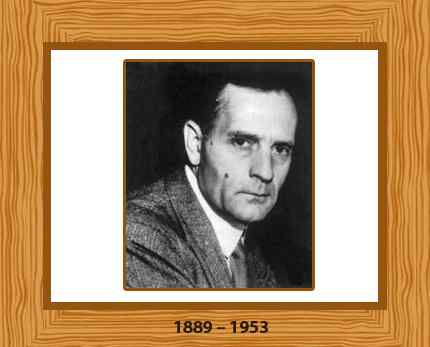Edwin Hubble

Edwin Hubble was an American astronomer who is known for playing a vital role in the development of extragalactic astronomy. Hubble substantiated the existence of galaxies other than the Milky Way in 1925 at a meeting of the American Astronomical Society. He is widely regarded as the most influential observational cosmologist of the 20th century
It was revealed in in 1920 that the Sun was part of the Milky Way or the Galaxy; a vast group of stars. This made Hubble wonder if the nebulae were also a part of this group or not. After much research, he was able to demonstrate that the Universe was something much bigger than the imagination of any astronomer can comprehend.
Hubble had captured photographed hundreds of nebulae, and by 1924, declared that several of these consisted of stars and could be called galaxies. He categorized the galaxies into different types according to the structure of their spirals, something that was later proved to be wrong. While studying the constellation of Andromeda, the largest visible galaxy in the sky, he found out that it contained a variable star. Hubble concluded the Andromeda nebula was much distant to earth as compared to any other known star, making it outside the Milky Way galaxy. The discovery made him world-famous and proved the concept of “single galaxy universe” wrong.
This landmark discovery was followed by the findings of more Cepheid variables in other nebulae and Hubble successfully measured their distances. To his surprise, they were even more distant than the Andromeda nebula. With these conclusions, he demonstrated that the universe was much, much bigger.
Hubble discovered the asteroid 1373 Cincinnati in 1935. His famous book The Observational Approach to Cosmology and The Realm of the Nebulae was also published around the same time.
He died on September 28, 1953 of a stroke in San Marino, California. He was 63 years old.

Edwin Hubble was an American astronomer who is known for playing a vital role in the development of extragalactic astronomy. Hubble substantiated the existence of galaxies other than the Milky Way in 1925 at a meeting of the American Astronomical Society. He is widely regarded as the most influential observational cosmologist of the 20th century
Contributions and Achievements:
Hubble developed an interest in “nebulae”; cloudy objects in the sky during night. He made an excellent observation that these clouds were not entirely made up of clouds of gas, but also consisted of clouds of stars, usually arranged in spirals.It was revealed in in 1920 that the Sun was part of the Milky Way or the Galaxy; a vast group of stars. This made Hubble wonder if the nebulae were also a part of this group or not. After much research, he was able to demonstrate that the Universe was something much bigger than the imagination of any astronomer can comprehend.
Hubble had captured photographed hundreds of nebulae, and by 1924, declared that several of these consisted of stars and could be called galaxies. He categorized the galaxies into different types according to the structure of their spirals, something that was later proved to be wrong. While studying the constellation of Andromeda, the largest visible galaxy in the sky, he found out that it contained a variable star. Hubble concluded the Andromeda nebula was much distant to earth as compared to any other known star, making it outside the Milky Way galaxy. The discovery made him world-famous and proved the concept of “single galaxy universe” wrong.
This landmark discovery was followed by the findings of more Cepheid variables in other nebulae and Hubble successfully measured their distances. To his surprise, they were even more distant than the Andromeda nebula. With these conclusions, he demonstrated that the universe was much, much bigger.
Hubble discovered the asteroid 1373 Cincinnati in 1935. His famous book The Observational Approach to Cosmology and The Realm of the Nebulae was also published around the same time.
Later Life and Death:
Edwin Hubble spent much of his later life trying to prove astronomy as a field of physics.He died on September 28, 1953 of a stroke in San Marino, California. He was 63 years old.
No comments:
Post a Comment